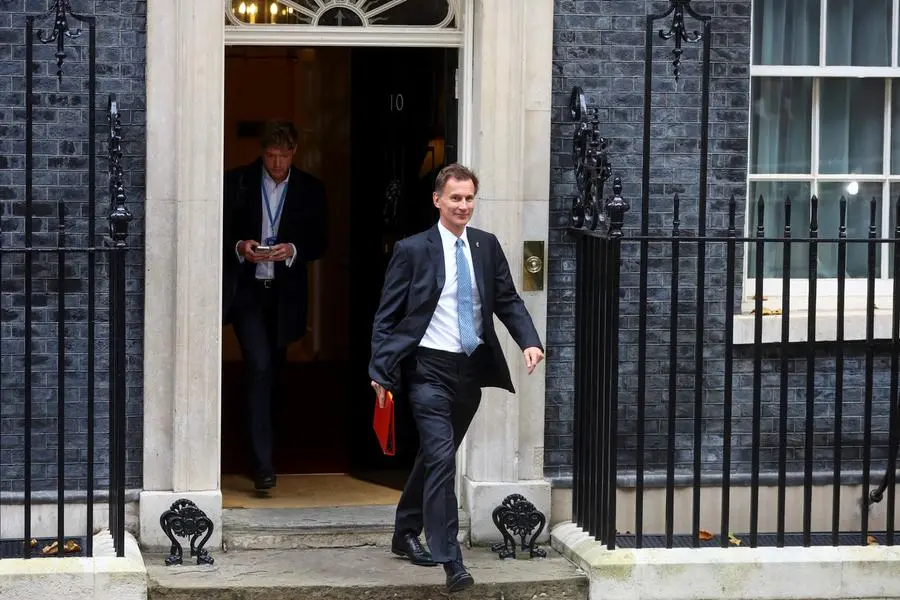PHOTO
LONDON - British finance minister Jeremy Hunt should rethink his plans to raise taxes and cut spending in next week's budget, a think-tank said, warning that many households would need further government help even without a fresh squeeze on the public finances.
The National Institute of Economic and Social Research (NIESR) said on Friday that Hunt's plan to tighten fiscal policy was ill-advised given its forecast that nearly one in five British households would have few or no savings by April 2024.
Stephen Millard, NIESR's deputy director for macroeconomics, said high inflation and the recent jump in Bank of England interest rates meant it was not the right time for further curbs on spending and higher taxes.
Furthermore, the government had already stabilised financial markets after the bond market rout triggered by the short-lived tax-cutting plans of former prime minister Liz Truss, he said.
"It's not at all clear that the Chancellor needs to raise taxes or cut spending in the Autumn Statement next week. It just doesn't have to be this way," Millard said.
Earlier on Friday, official data showed Britain's economy shrank in the three months to September in what many analysts think is the start of a long recession.
Hunt, responding to the figures, said he knew there was a "tough road ahead - one which will require extremely difficult decisions" but "to achieve long-term, sustainable growth, we need to grip inflation, balance the books and get debt falling".
NIESR's deputy director for public policy, Adrian Pabst, said the cost of supporting the poorest households did not have to be big.
A fund to help struggling homeowners with rising mortgage costs and a 25-pound-a-week ($29) increase in Universal Credit welfare payments - which would keep 250,000 people out of destitution - would cost 4.7 billion pounds or 0.2% of economic output.
"It seems extraordinary to suggest that this country cannot afford 0.2% of GDP to help the most vulnerable," Pabst said.
NIESR said it expected Britain's economy to grow by 0.7% in 2023 and by 1.7% in 2024, potentially avoiding a recession that has been forecast by the Bank of England and many analysts.
($1 = 0.8516 pounds)
(Writing by William Schomberg; Editing by Catherine Evans)





















